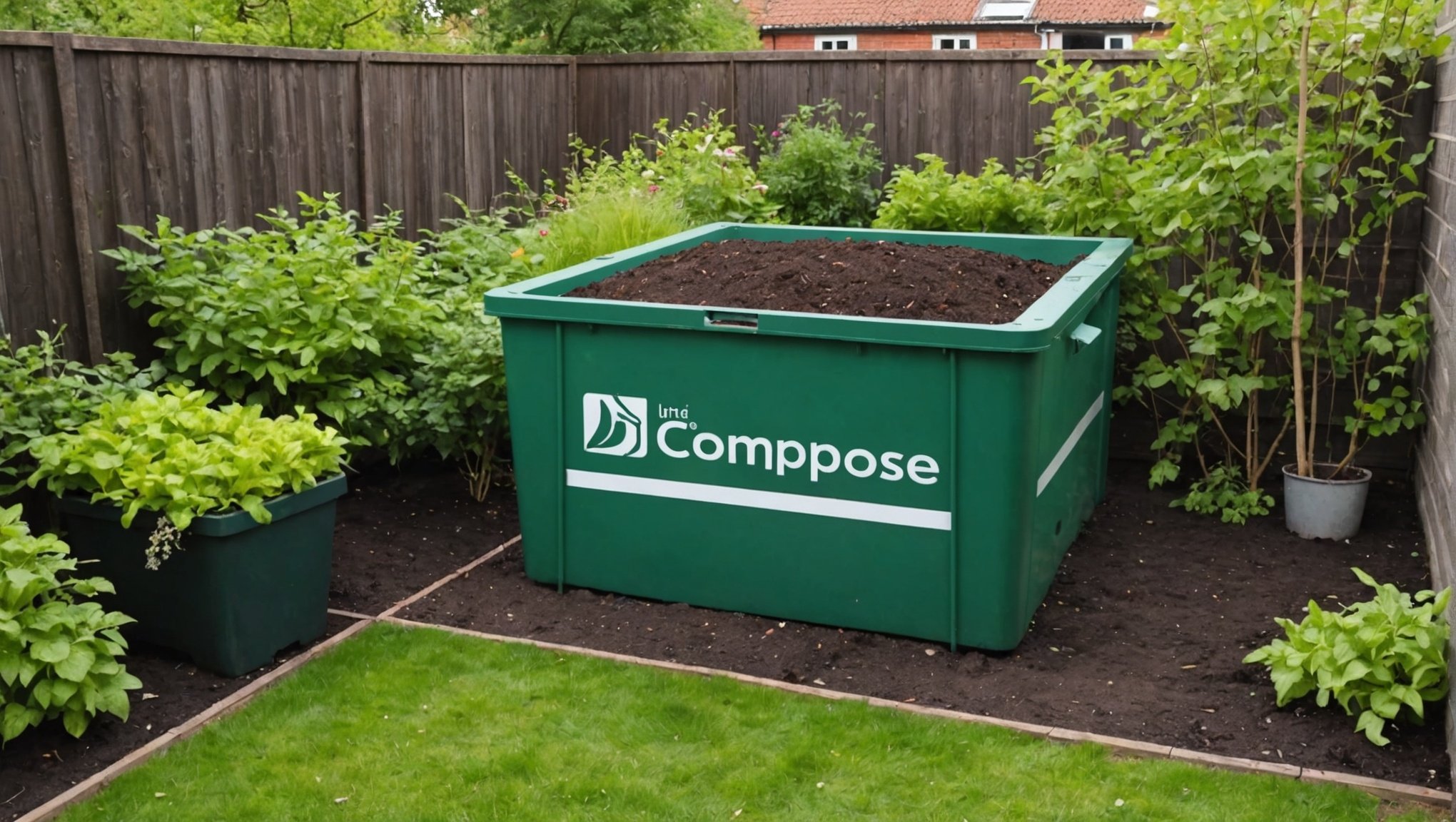In our quest to adopt sustainable practices while enhancing the fertility of our soil, composting has become a key component in urban gardening. By composting your waste, you not only reduce the amount of rubbish you generate but also enrich your garden soil for healthier, vibrant plants. It’s your opportunity to give back to the environment and keep your garden lush and green. Let’s delve into how you could establish this eco-friendly process right in your backyard.
Understanding Composting
Before we jump to the process of composting, it is essential to understand what composting is and how it benefits your garden. Composting is a natural process that turns organic material into a nutrient-rich soil conditioner, known as compost. This process involves a mix of green and brown waste, which adds valuable nutrients to the soil and improves its structure.
A découvrir également : How to Control Aphids Naturally in a UK Rose Garden?
Green waste includes vegetable peelings, fruit waste, tea bags, plant prunings, and grass cuttings. They are rich in nitrogen, which is vital for the growth and development of plants. On the other hand, brown waste includes cardboard, paper, twigs, leaves, and sawdust, which are high in carbon, essential for composting and providing energy for microorganisms.
By composting, you will also be reducing the amount of waste sent to landfill, thus lessening your carbon footprint. It’s an excellent way to handle your kitchen and garden waste, while returning essential nutrients back to the soil.
Dans le meme genre : Elevate your urban oasis with stylish balcony plant pots
Choosing the Right Compost Bin
Choosing the right compost bin is the first step in creating an efficient composting system. There are numerous compost bins available in the market, but the best one for you will depend on the amount of waste you generate and the space available in your garden.
The traditional compost bin is a simple box with a lid and a small door at the bottom to access the compost. These bins are perfect if you have a small garden and only produce a modest amount of waste. They are also easy to maintain and can be tucked away in a quiet corner of your garden.
For those with larger gardens and more garden waste, a compost tumbler might be a better choice. These bins are larger and have a handle for easy turning of the compost. The constant turning speeds up the composting process, giving you compost in less time.
Regardless of the type of bin, it’s important to ensure it is placed in an area with good drainage and away from direct sunlight to maintain optimum composting conditions.
The Composting Process
Now that you have the right compost bin, it’s time to start the composting process. Essentially, composting involves layering green and brown materials in the compost bin and adding water to keep the compost pile moist.
Start with a layer of coarse brown material such as twigs and straw to aid aeration and drainage. Next, add a layer of green material and then a layer of brown material. Continue this layering process until the bin is full.
The composting process is driven by microorganisms that break down the waste into compost. These microorganisms require a balance of carbon and nitrogen, which is why it’s important to add a mix of green and brown waste. The brown materials provide carbon, while the green materials provide nitrogen.
Throughout the composting process, it’s important to turn the compost pile every few weeks using a pitchfork or garden fork. This helps to aerate the pile and speeds up the composting process. If the compost pile becomes too dry, add some water. If it becomes too wet, add more brown material.
Using Your Compost
Once your compost has turned into a dark, crumbly material with a pleasant earthy smell, it’s ready to be used in your garden. Compost is a fantastic soil conditioner and can be added to your garden in a number of ways.
You can mix compost into your garden soil before planting. This will enhance the soil structure and provide your plants with essential nutrients. You can also use compost as a mulch around your plants to help conserve water and suppress weeds.
Another way to use compost is by making compost tea, a nutrient-rich liquid that can be used to water your plants. To make compost tea, simply add compost to a bucket of water and let it steep for a few hours or overnight. Then, strain the liquid and use it to water your plants.
Maintaining Your Compost Bin
Maintaining your compost bin is crucial for successful composting. Make it a habit to add green and brown materials regularly and turn the pile every few weeks. Always keep an eye on the moisture levels and add water or brown materials as necessary.
If you notice a foul smell coming from your compost bin, it could be a sign that the composting process is not going well. It could be too wet, or there might be too much green material. In such cases, add more brown material and turn the pile to let in more air.
Keeping a healthy compost pile not only ensures you have a constant supply of nutrient-rich compost for your garden, but also contributes to a healthier environment by recycling organic waste. So, start composting today, and enjoy the benefits of this eco-friendly process in your urban garden.
Troubleshooting Composting Challenges
In creating your eco-friendly compost garden, you may encounter a few challenges. Don’t despair; troubleshooting common compost problems is usually pretty straightforward. Recognizing and rectifying these issues in time will ensure your compost pile remains productive and healthy.
Temperature plays a vital role in the composting process. If your compost pile is too cold, the decomposition process can slow down. This can happen if there isn’t enough green material or if the pile is too small. To rectify this, add more green waste, or consider investing in a larger compost bin if space permits.
On the other hand, if the pile is too hot, it can kill the beneficial microorganisms that aid decomposition. This can occur if there’s too much green material. Balance it out by adding more brown materials.
Odour can be a common problem in compost piles. If your compost pile smells like ammonia, it could indicate excess nitrogen, often due to too much green material. Adding brown material can help fix this. If your compost pile smells rotten or sour, it could be too wet or not getting enough air. Turn the pile to aerate it and add brown material to absorb excess moisture.
Insects and pests can sometimes be attracted to compost piles. To prevent this, avoid adding meat, dairy, or cooked food waste to your pile. Covering your compost with a layer of brown material or a lid can also help deter pests.
Conclusion: The Benefits of Composting for an Eco-Friendly Urban Garden
Creating your own composting system in your urban garden is an excellent way to reduce your carbon footprint, decrease the production of greenhouse gases like methane and carbon dioxide, and recycle your kitchen and garden waste into nutrient-rich compost.
In addition to being an eco-friendly practice, composting also provides numerous benefits for your garden. The compost you create is a fantastic natural fertiliser, rich in nutrients, which enhances the fertility and structure of your soil. This, in turn, promotes healthy plant growth, resulting in a more lush and vibrant garden.
Moreover, composting encourages a sustainable garden by reducing the need for chemical fertilisers and pesticides. It also helps conserve water as compost improves the soil’s ability to retain moisture.
Finally, composting can bring about a sense of satisfaction. By making compost, you are actively contributing to a greener, more sustainable environment right in your community garden.
So, why wait? Start creating your eco-friendly compost system today! And as you do, remember the importance of balancing green and brown materials, maintaining the right temperature and moisture levels, and turning your compost heap regularly. With patience and proper care, you’ll soon have a thriving, friendly garden that’s not only pleasing to the eye but also kind to our planet.











